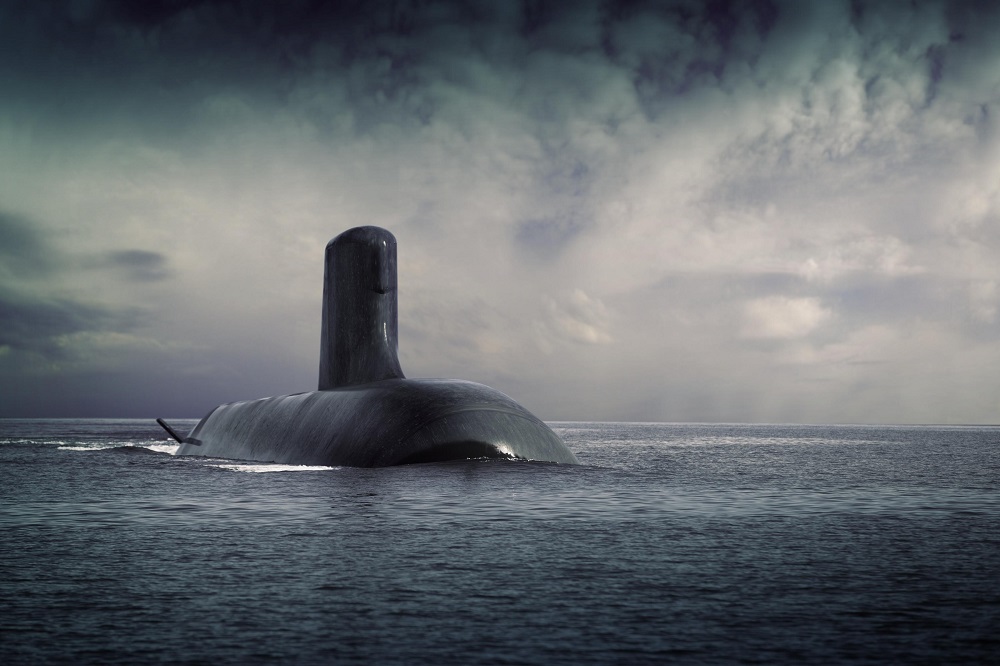The hidden cost of the Attack-class submarine cancellation
Posted By Charlie Turner on September 23, 2021 @ 06:00

The abrupt announcement last week by the Australian government that it was scrapping its plans to build a fleet of diesel-electric submarines in favour of nuclear-powered boats will have a ripple effect throughout the defence industry. The sunk cost of five years’ work and $2.4 billion has inflicted greater damage on domestic relations than on bilateral relations with the French government—it has broken the trust between our defence leaders and Australian industry.
On the one hand, the government should be applauded for abandoning a program that was clearly deficient in its provision of the Australian Defence Force’s strategic requirements. However, with all business investment decisions comes a calculation of risk. For small and medium-sized businesses operating in the Australian defence market, the risk surrounding the making of strategic investments continues to increase.
Industry bodies and lobby groups in Team Defence Australia [1], the Industry Capability Network [2] and the Australian Industry & Defence Network [3] have spent the past five years encouraging companies to invest time and resources to expand or set up a capability to service the submarine program. There have been multiple government-supported trips to Europe inviting Australian companies, at their own expense, to interact within the supply chain to develop relationships and encourage the coveted ‘knowledge sharing’ between French and Australian companies necessary to find success in such a technology leap. Follow-on trips and other efforts have been undertaken in the development of relationships and strategies centred around the program.
Those investments are a sunk cost for the Australian businesses that provide the critical operational services to support our defence capability.
Crucially, a significant number of Australian companies investing in these initiatives were small and medium enterprises that wouldn’t hold contracts directly with the defence organisation but rather with the large prime contractors. They have no claim for losses—and it’s unlikely that the multinational primes will miss out on any penalty clauses contained in their contracts’ cancellation terms.
The repercussions of these actions will have long-lasting implications for the new program, in whatever form it takes. Initial indications are for a reduction in Australian industry content by 30%, down to 40% of the total build of the new submarines from the 60% under Naval Group. The absence of a commitment to 12 submarines under the AUKUS pact (the statement that there will be ‘at least eight’ is suitably vague) further reduces the market by another 30%.
With the Attack-class submarine program failing to survive a change in government leadership, how much confidence can industry maintain for investment when the new program has now apparently bypassed the strategic and political discussions about the requirement for nuclear-powered vessels? Notably, the current and previous two prime ministers have had different preferred submarine suppliers despite being from the same political party. In the context of a change in government, the opposing major political parties have previously maintained a resolute opposition to any nuclear energy in Australia, and while Labor says it supports the new plan (with conditions), it will potentially be put in jeopardy at each federal election.
The AUKUS announcement gave an 18-month period for the examination of requirements for nuclear stewardship. It would be prudent to use that time to take action to begin the process of building trust and confidence in the program among Australian industry. The list of capable suppliers in Australia to support this program is proportionately small in comparison to the other six countries currently operating nuclear-powered submarines and the program’s success will rely heavily on their commitment.
For now, the only approach for industry is to watch and observe—a mindset that will cost the program schedule delays and capability shortfalls from an industry often touted as the fourth pillar of defence in white papers and capability plans.
For the government, as a staunch supporter of and advocate for Australian industry and jobs creation, the pathway back to success will be found only by providing transparency. Addressing the abandonment of white paper and procurement recommendations that led to the initial decision for the conventionally powered Attack class would be good place to start. Public discussion on the practical and political ramifications of a nuclear-propulsion solution within the country, our region and globally is the next step. Finally, continued bipartisan support for the program, in its latest form, will be required to avoid another calamity following an election or leadership spill.
Article printed from The Strategist: https://www.aspistrategist.org.au
URL to article: https://www.aspistrategist.org.au/the-hidden-cost-of-the-attack-class-submarine-cancellation/
URLs in this post:
[1] Team Defence Australia: https://www1.defence.gov.au/business-industry/Export/team-defence-australia
[2] Industry Capability Network: https://icn.org.au/
[3] Australian Industry & Defence Network: https://www.aidn.org.au/
Click here to print.